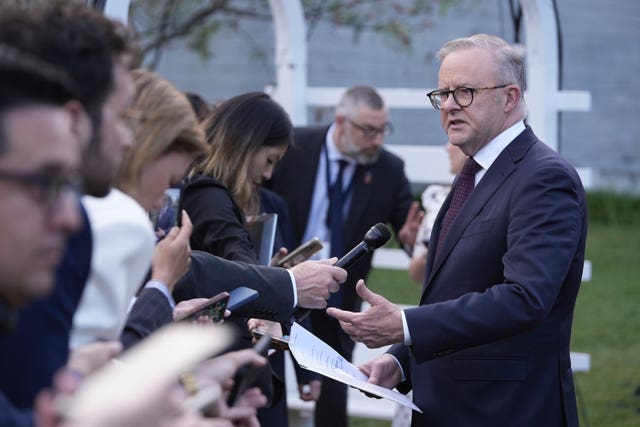Social media sites call for Australia to delay its ban on child use
Companies are calling on the proposed legislation to be pushed back by at least a year.

An advocate for major social media platforms told an Australian Senate committee that laws to ban children younger than 16 from the sites should be delayed until next year at least instead of being rushed through the Parliament this week.
Sunita Bose, managing director of Digital Industry Group Inc, an advocate for the digital industry in Australia including X, Instagram, Facebook and TikTok, was answering questions at a single-day Senate committee hearing into world-first legislation that was introduced into the Parliament last week.
Ms Bose said the Parliament should wait until the government-commissioned evaluation of age assurance technologies is completed in June.
“Parliament is asked to pass a bill this week without knowing how it will work,” she said.
The legislation would impose fines of up to 50 million Australian dollars (£25.8 million) on platforms for systemic failures to prevent young children from holding accounts.

It seems likely to be passed by the Australian Parliament by Thursday with the support of the major parties.
It would take effect a year after the bill becomes law, allowing the platforms time to work out technological solutions that would also protect users’ privacy
Ms Bose received heated questions from several senators and challenges to the accuracy of her answers.
Opposition senator Ross Cadell asked how his 10-year-old stepson was able to hold Instagram, Snapchat and YouTube accounts from the age of eight, despite the platforms setting a nominal age limit of 13.
Ms Bose replied: “This is an area where the industry needs to improve.”
She said the proposed social media ban risked isolating some children and driving children to “darker, less safe online spaces” than mainstream platforms.
Ms Bose said her concern with the proposed law was that “this could compromise the safety of young people”, prompting a hostile response from opposition senator Sarah Henderson.
“That’s an outrageous statement. You’re trying to protect the big tech giants,” Ms Henderson said.
Unaligned senator Jacqui Lambie asked why the platforms did not use their algorithms to prevent harmful material from being directed to children.
The algorithms have been accused of keeping technology-addicted children connected to platforms and of flooding users with harmful material that promotes suicide and eating disorders.
“Your platforms have the ability to do that. The only thing that’s stopping them is themselves and their greed,” Ms Lambie said.
Ms Bose said algorithms were already in place to protect young people online through functions including filtering out nudity.
“We need to see continued investment in algorithms and ensuring that they do a better job at addressing harmful content,” she said.





